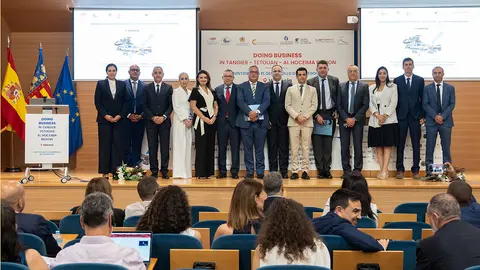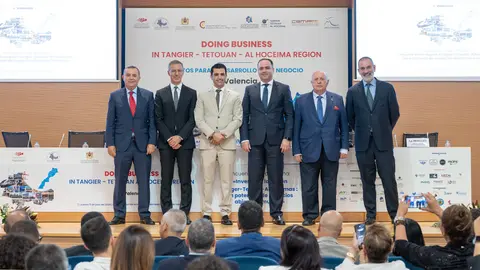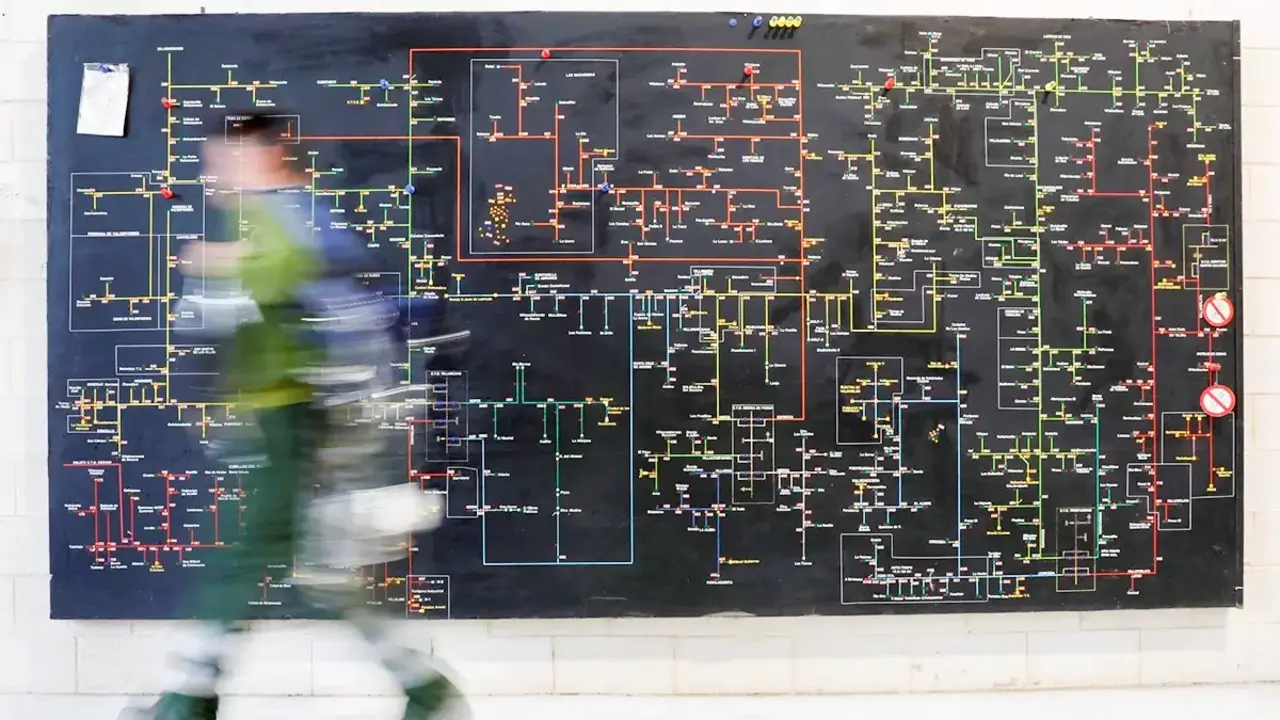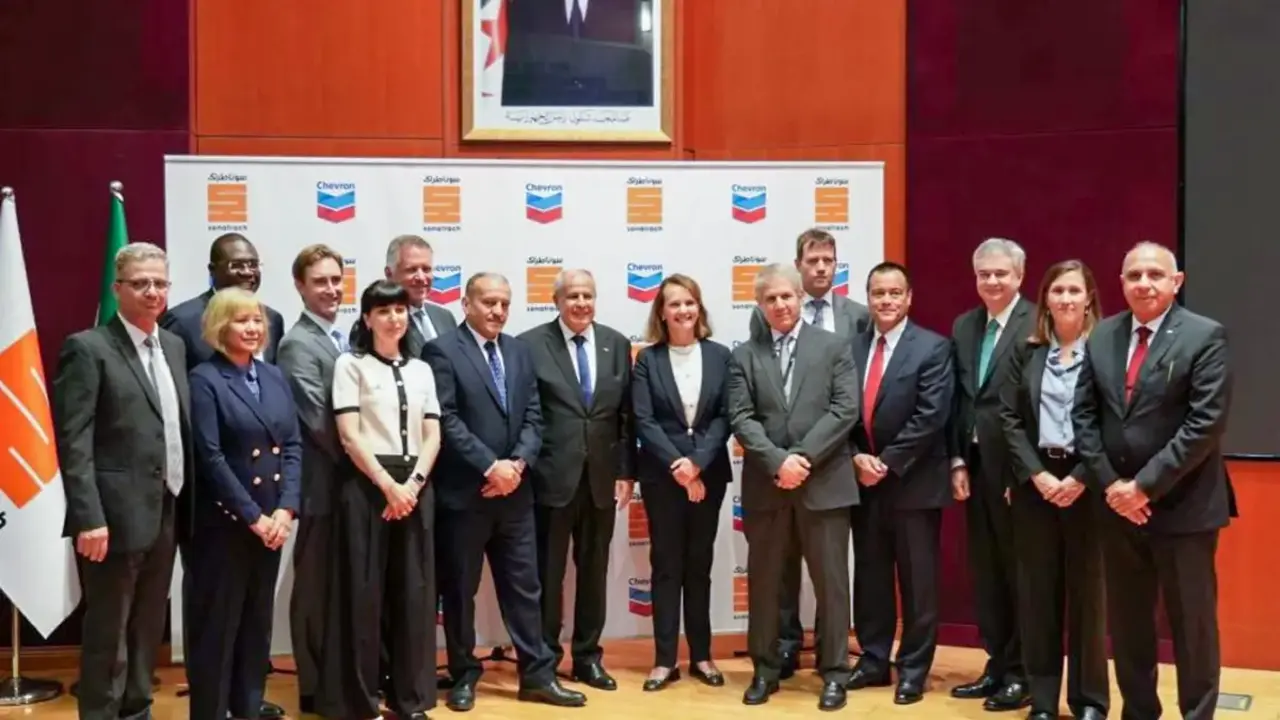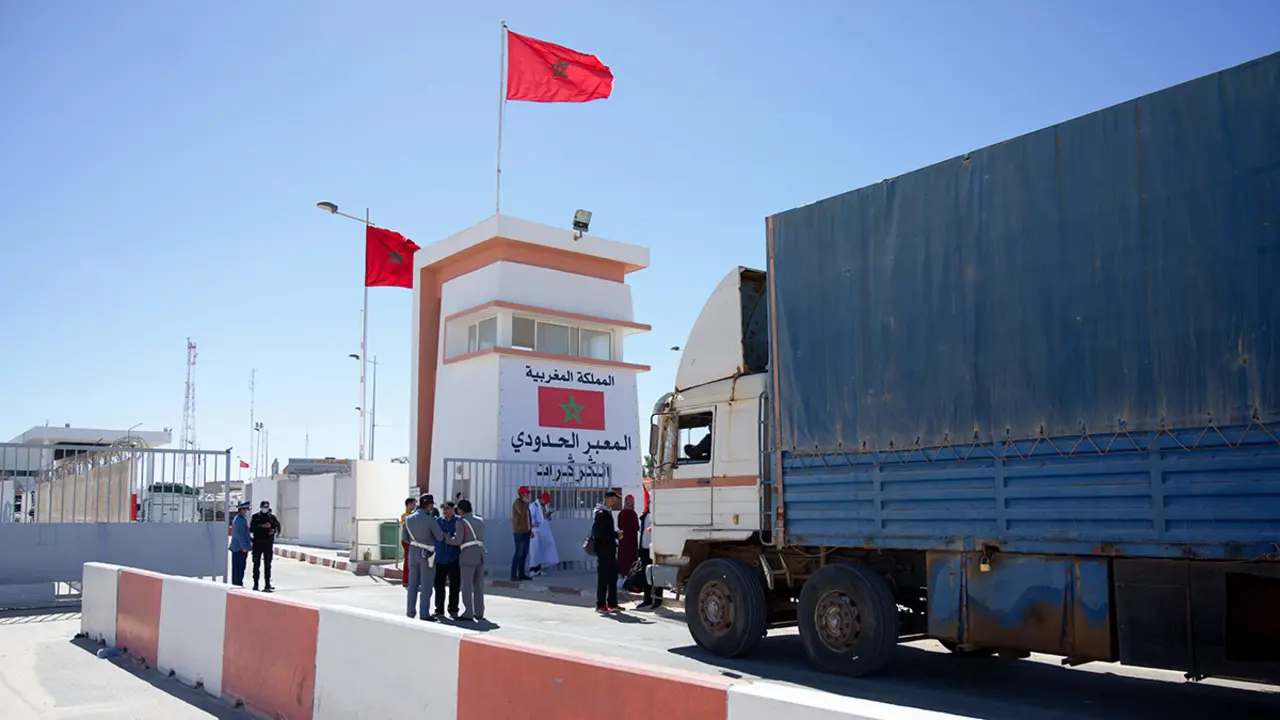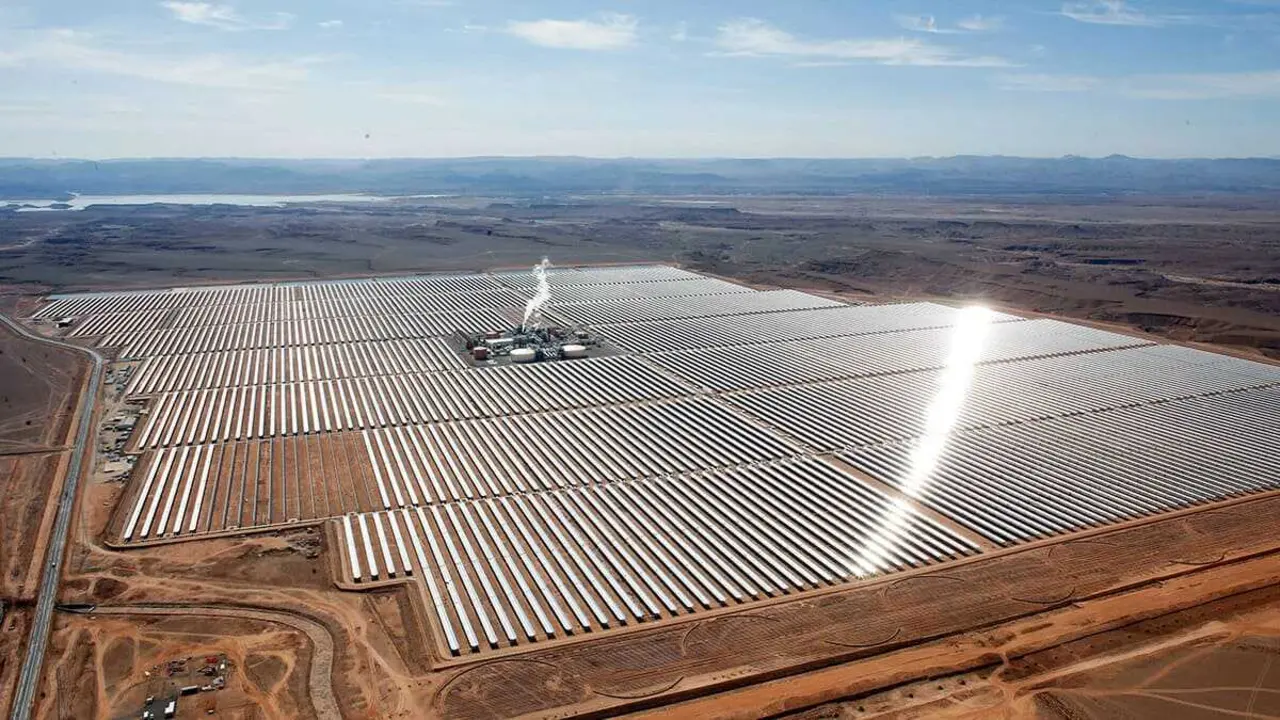The keys to investing and succeeding in Morocco as told by its protagonists
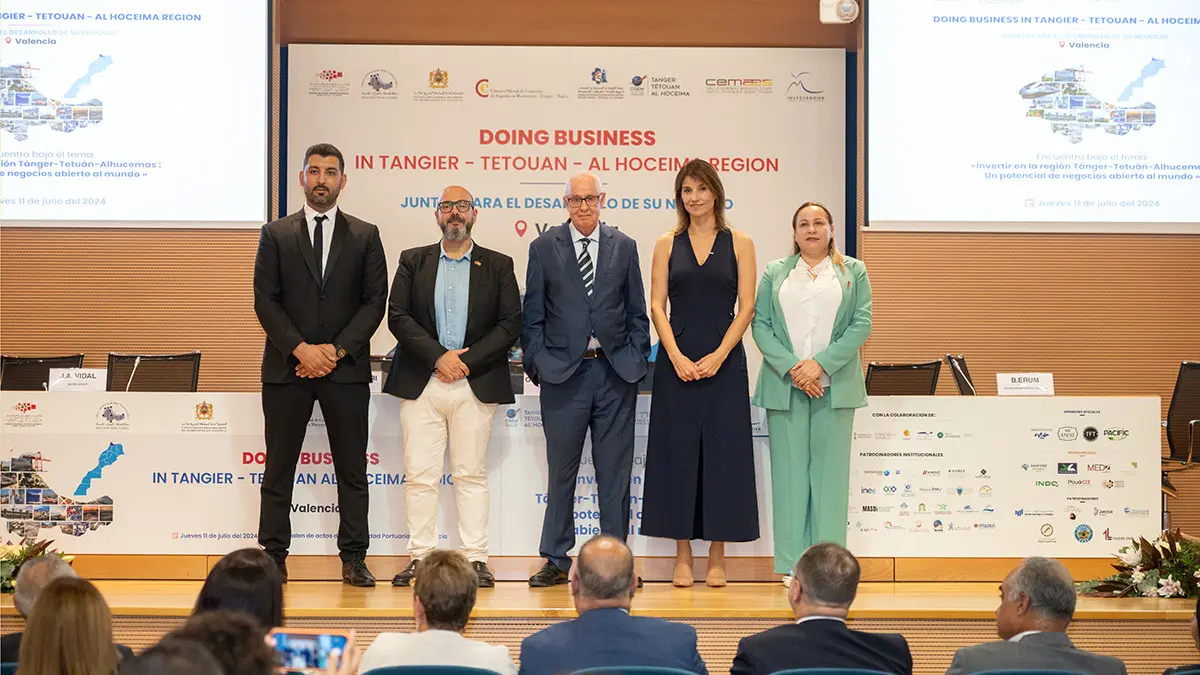
The Doing Business in Tangier-Tetouan-Al Hoceima meeting, held in Valencia under the title "Investing in the Tangier-Tetouan-Al Hoceima region: a business potential open to the world", dedicated one of its panels to the presentation of various success stories of investments in Morocco.
This section was opened by Blanca Erum, Managing Director of Plásticos Erum and subsidiaries and Co-CEO of the Erum Group, who explained the evolution and internationalisation of this family business, now in its fourth generation, which has more than 85 years of history, 24 of which in Morocco, and which encompasses six business groups.
Erum pointed out that they employ 5,000 people, 1,200 of them in Morocco with direct contracts, 44% of them women and with an average age of 30.
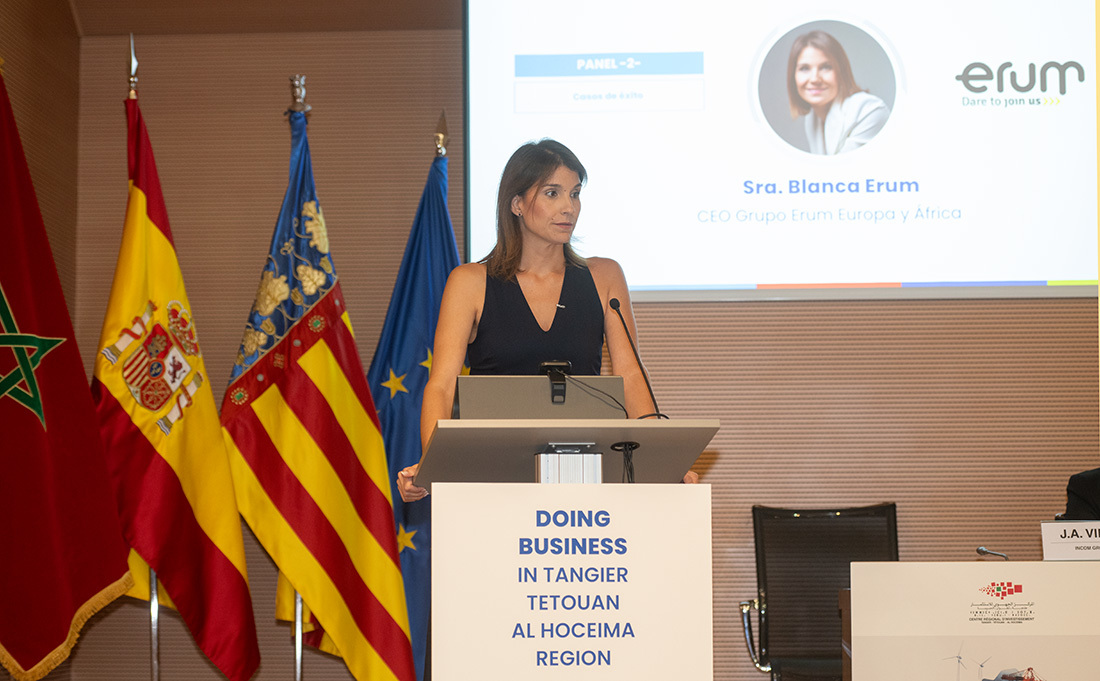
With regard to their facilities, he said that they have 42,000 square metres, which will be extended by 30,000 square metres as they will shortly be opening a new activity in the neighbouring country.
After providing some information about this company, which began in the textile sector, Blanca Erum revealed some of the keys to its success. In 2000, they began by selling hangers to Morocco and Algeria; three years later they opened in Morocco. Then they asked themselves that if they were delivering hangers, why not also boxes; and if they had to go, why come back empty? So they opted for diversification and circularity.
In 2018, the entrepreneur added, they reached a great boom by also betting on technology, a bet in which they also felt very supported.
Ten years earlier, in 2008, the company felt that they were ready to enter other sectors such as the automotive sector, with the manufacture of interior parts; the household and homeware sector; and, subsequently, in the generation of ecosystems.
Business expansion and new commitments after analysing the needs that the markets were not covering, which is why they decided to open engineering services, logistics centres to help with distribution, etc.
Blanca Erum told of the experience of an enterprising family that "has dedicated its efforts, with hard work and commitment, to becoming one of the leading companies in its sector, manufacturing products and services that go beyond the limits of the plastics industry", according to its website, and its own in Morocco, a country where it has practically lived for 14 years.
This company is present on all continents; in the case of Africa, in addition to Tangiers (Morocco), it is also present in Cairo (Egypt) and Cape Town (South Africa).
Talent, a must
Juan Antonio Vidal, managing director of the InCom Group plant in Morocco, a Valencian multinational dedicated to the engineering, design and manufacture of composite material kits, explained the evolution of this company and its commitment to the Moroccan market, a country where they arrived in September 2020 "with all the fears you can imagine", he said.
Despite the complicated years, due to the pandemic, the crisis, geopolitical tensions, floods, and even earthquakes, Vidal said, "with a high-level team, one hundred percent Moroccan, and the support of the institutions, we have reached where we are". In 2023, they opened the second plant, and currently have one hundred employees and the intention to continue growing.
Among some of the reasons for their success, Vidal highlighted the importance of integration into the Moroccan business culture, "we are not free verses", he said, which is why they are incorporated into institutions such as the Moroccan Chamber of Commerce or the Spanish Businessmen's Club. He also highlighted the commitment to talent as something essential, "talent that there is in Morocco", he said, which is why one hundred percent of the staff is Moroccan. "Its people make a company successful," he concluded.
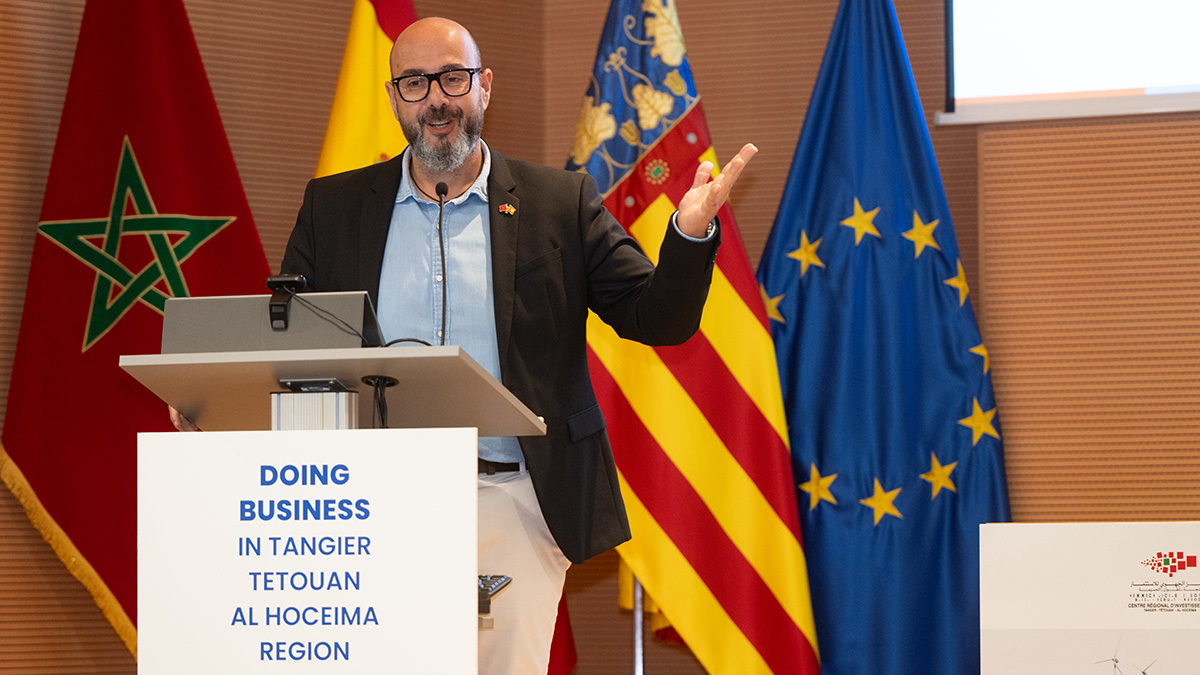
Institutional support
ILYATEX, a company dedicated to textile imports, was another of the examples on the table. Its general manager, Omar El Hzoumri, shared the experience of more than a decade with the attendees, stressing that this business is between the Valencian Community and Morocco and that the achievements have been made thanks to the support of public and private institutions in Valencia and the Regional Investment Centre of Tangier-Tetouan-Al Hoceima, "which convinced us to take our products to Morocco".
When asked why Morocco? Omar El Hzoumri pointed out that, in addition to maintaining the identity in the Valencian Community, the reasons were due to its proximity, for being a stable country, for its openness to other countries, for the free trade agreements, for the business opportunities, for the infrastructures such as the port or the airports and for the varied offer it presents with its logistic platforms, commercial areas...
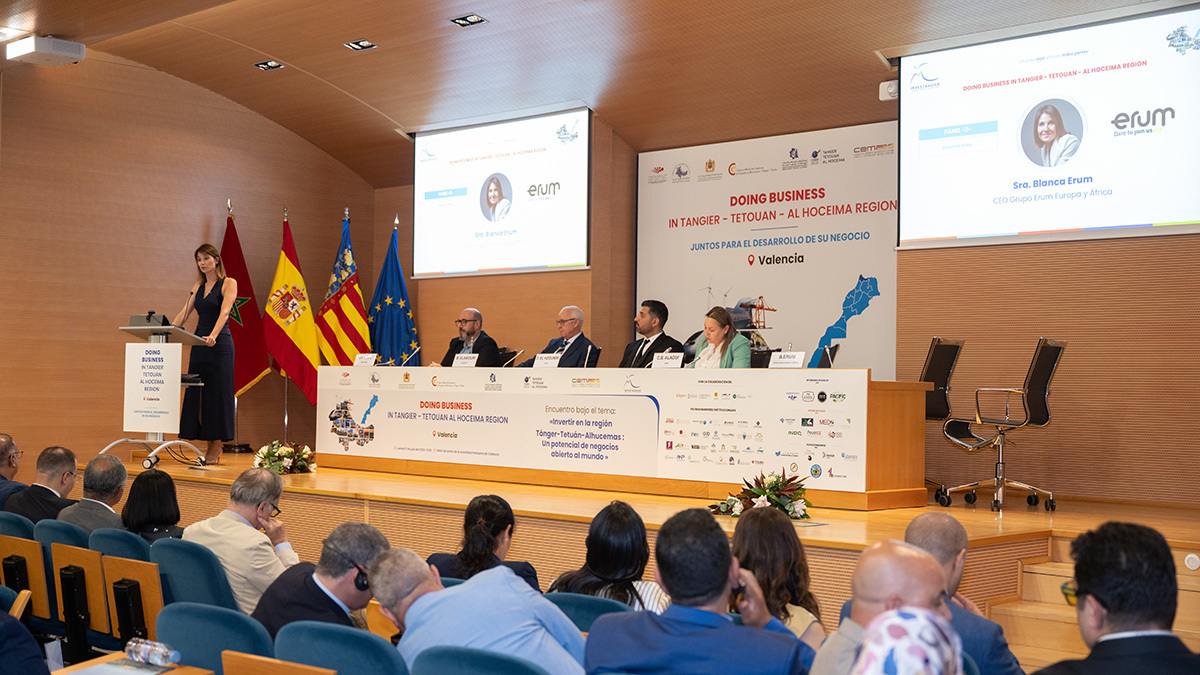
The speaker also highlighted as important points when investing in Morocco the official support for the procedures, having information with the maximum transparency and getting reliable partners. In this sense, he encouraged Valencian companies that decide to invest in Morocco to go hand in hand with official institutions to guarantee the entire process.
Finally, she stressed the need to be aware of the legal framework in force in the neighbouring country and to adapt to the needs of the Moroccan market.
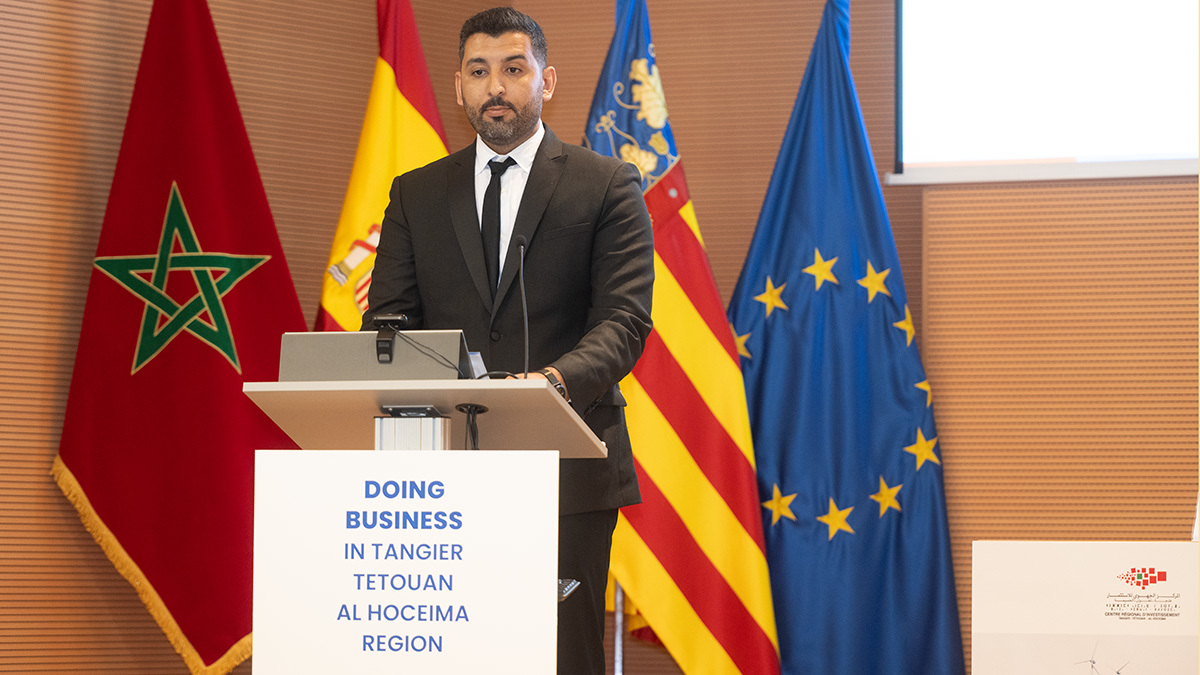
Enterprising women
Chaibia Balbzioui Alaoui, president of the Association of Moroccan Businesswomen, attended this meeting to raise the voice of many enterprising Moroccan women who have demonstrated their efficiency and who can welcome Valencian businesspeople who are encouraged to invest in the same way as CRITTA, a centre that she defined "as a pillar of success in our region".
Speaking about her association, Balbzioui Alaoui did not hesitate to describe it as "a pillar of female entrepreneurship and a catalyst for economic development", a platform, she explained, that was created in 2000 on the initiative of a group of women who believed in the growth of Morocco. Currently, they are already represented in 12 regions and focus on different strategic and social axes such as economic development, local entrepreneurship, inclusive development... "We contribute and boost jobs for women and strengthen local development", she said.
On the other hand, she spoke of the different programmes they develop such as accompaniment, training and direct, personal and physical advice not only to women but also to men, and even "to investors who are welcome and who can benefit from this advice in situ"; programmes for green economy projects, renewable energies, digitalisation and transformation of companies or industry. In this last case, she commented that they have signed an agreement with the Ministry of Industry from which 1,200 women who want to set up their small businesses in the region will be able to benefit.
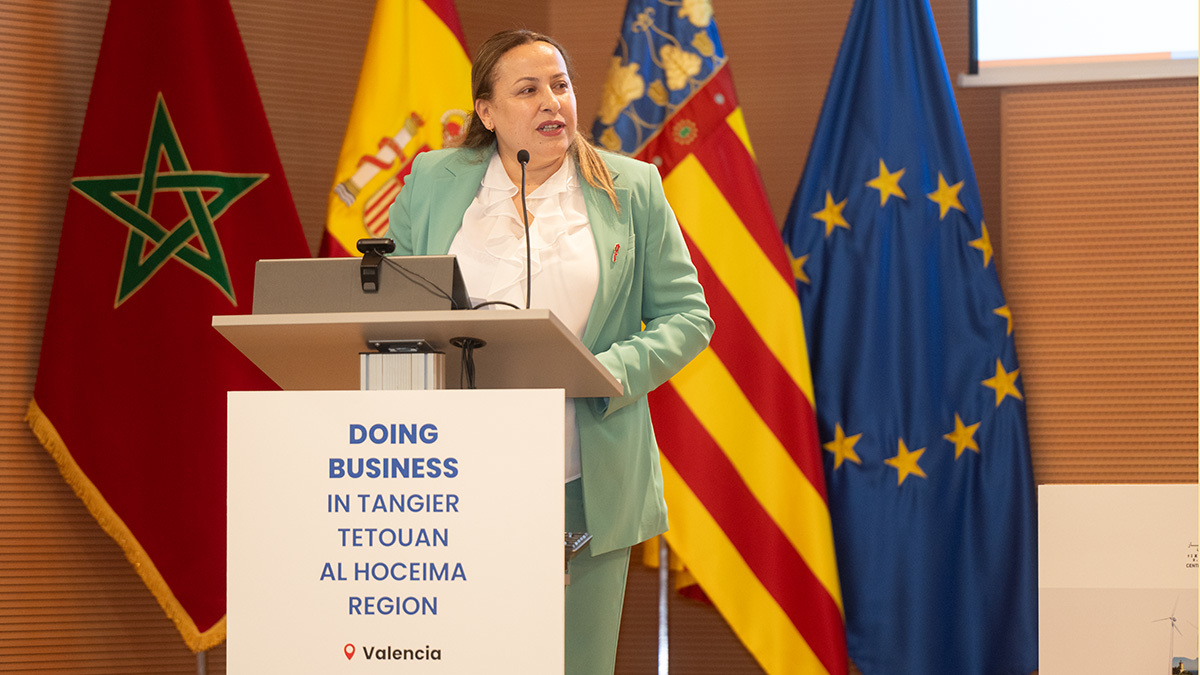
Employment and economic growth
Mohammed Alamouri, general manager of PALMAFRUT, a company focused on the industry and export of red fruit, a sector that has given much to talk about, he said, but which provides work and added value in terms of its economy, generating 8,000 million dirhams in foreign currency for the country and employing more than 20,000 people, closed the session dedicated to success stories.
Alamouri recalled the company's beginnings with strawberries, later adding raspberries and blueberries in 2008, products that now outstrip strawberries. "These are mainly Spanish companies that have been successful because of the social and human side. Almost the entire workforce, she stressed, is female and enjoys all the social rights and continuous training accredited by international auditing companies, a fact that opens the doors to all markets, including China.
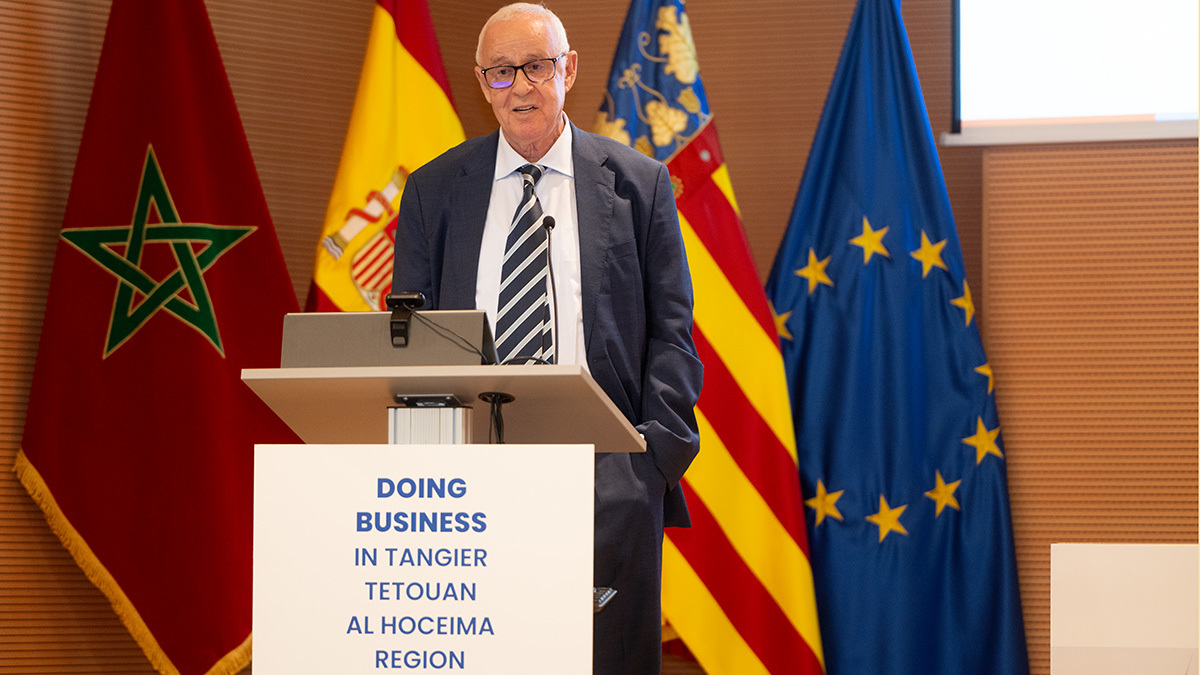
"Thanks to women, we have reached a level of prestige in terms of the European market and consumer that can be described as a success," said the businessman, who did not want to conclude without a nod to the city of Valencia, "where I studied and where they taught me many things".
This business meeting was organised by the Regional Investment Centre of the Tangier-Tetouan-Al Hoceima Region, the Official Spanish Chamber of Commerce in Morocco-Tangier, the General Consulate of the Kingdom of Morocco in Valencia, the Council of the Tangier-Tetouan-Al Hoceima Region, the Morocco-Spain Economic Council (CEMAES), the General Confederation of Moroccan Companies (CGEM) of the Tangier-Tetouan-Al Hoceima region, the Chamber of Commerce of Valencia, the Business Confederation of the Valencian Community-CEV, the Valencian Institute of Business Competitiveness IVACE and the Port Authority of Valencia.


